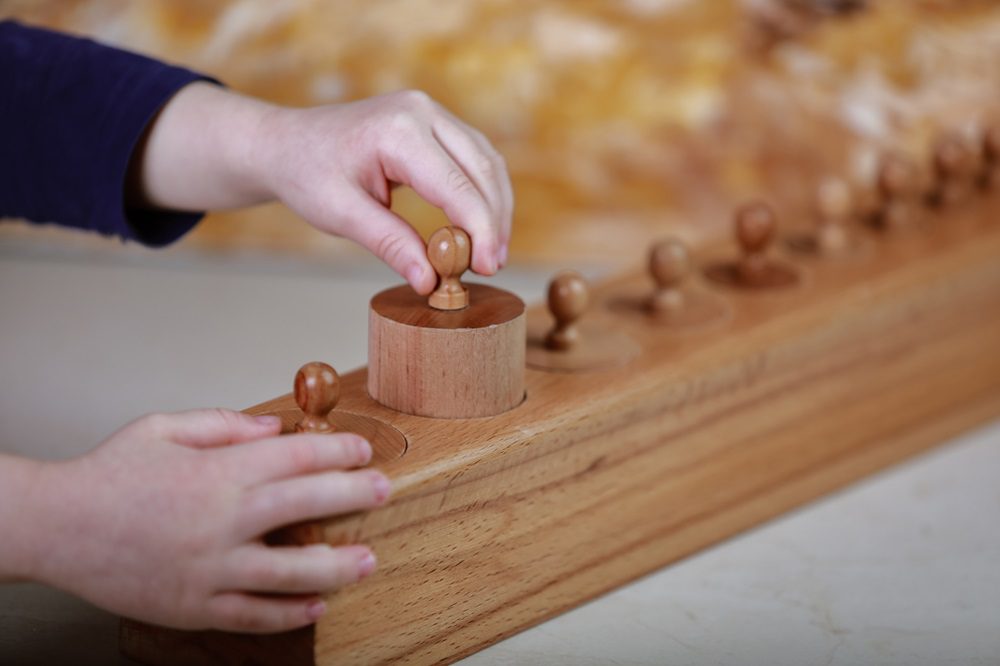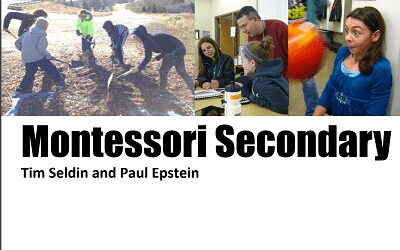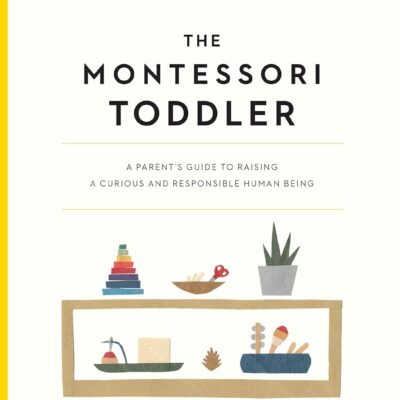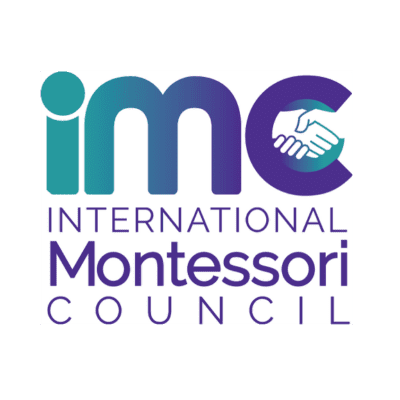by Tim Seldin & Renee DuChainey-Farkes
In the IMC Leadership Series, we explore different concepts, research, and philosophies of Leadership that would ensure a successful Montessori way.
This two-part series on the Montessori Board covers the concept, operational areas, success factors, and conflicts to avoid.

Part 1: Montessori Board: Concept, Creation & Constituents
What is a Montessori Board?
A Montessori school’s Board of Trustees is the governing body that is officially responsible for overseeing the school’s affairs, policies, and finances. The Board plans, sets major policy, approves the budget, and selects and works through a day-today professional educational leader who leads the school, following the Board’s vision and key decisions.
It governs while the Head of School leads and manages school operations. To govern is sometimes confused with managing.
We believe that Montessori Schools are best served by Montessori Boards that are fully committed to the Montessori Way.
Key Roles of the Board
The Board plays several key roles that are worth repeating. It defines the school’s mission, core values, and strategic priorities. It hires the Head of School, establishes policy, sets tuition, and approves the annual operating budget. Furthermore, it coaches, supports, and evaluates the Head of School and plays an essential role with the Head of School in assessing the school’s programs and operations.
Board members serve as ambassadors and cheerleaders for the school and the Head of School. Ultimately, the Board is responsible for ensuring the school’s long-term financial sustainability and success. The Board needs to be strategic and focused on the school’s future.
Montessori Board and Montessori Philosophy
A Montessori School should be governed by a Montessori Board
Montessori schools have a fundamentally different ethos from other schools, whether they are run on a non-profit or for-profit basis.
We believe that to be faithful to their mission. They should be governed and operated in a way consistent with the principles that are the foundation of Montessori educational practice and the philosophy of interpersonal and organizational life, similar to Montessori classrooms as learning communities.
Montessori Philosophy as it applies to Governance:
- Every voice can be heard. Kindness, respect, and inclusion exist for all voices on the Board.
- The Board is a circle of equals. There are no ‘in-groups’ and ‘out-groups.’
- The Board has a strong sense of community and an ongoing search for consensus.
- Non-confidential information is shared; confidential information is not.
- The School usually communicates to its stakeholders with high transparency except where confidentiality is essential. This openness and honesty earn a high level of trust.
- There is a culture within the Board where members feel safe and accepted.
- The school seeks a respectful resolution of disagreements.
- Board members are encouraged to explore their interests and think outside the box.
Types of Boards
There are primarily four main types of Boards seen in Schools:
- Board of Directors or an owner or ownership group in a school that is set up as a for-profit business
- Board of Trustees in a private and non-profit school
- Board of a public charter school
- Board of Advisors/Overseers, which is not a Board, as it has no governing authority. (We prefer to call them an Advisory Council for purposes of clarity.)
A Board of a private and non-profit school may call themselves a Board of Directors, but we prefer to call them a Board of Trustees because their purpose is to hold the school “in trust.”
An Advisory Council is a group of individuals that supplement the Board’s skills and abilities to help give input to the organization on issues and ideas. Usually, its members are selected by either the Head of School or the Board of Trustees. An Advisory Council provides input or recommendations to the Head and Board without voting authority.
Although a school that a sole proprietor owns usually doesn’t have a Board, we recommend having some sort of Board of Advisors or Council, so they have support, accountability, outside voices and thinking to support their leadership.

Creation Documents
All Not-for-profit schools are governed by a set of Bylaws for best practice and are guided by the original organizing document, its Articles of Incorporation.
The Articles are the original set of formal documents written and filed with a government body to legally document the creation of the school as a corporation under the laws of a state, provincial, or national government. These documents may also be known as Certificates of Incorporation or Corporate Charters.
They must be very carefully designed. They need to define:
- What kinds of programs can your school operate (if you might want to run a camp someday, include it, etc.).
- How many members do you have on your board?
- Qualifications for board members?
- Process for board members selection and election?
- Terms of office of a board member?
- Powers of the board.
- Whether or not a board member can be an employee of the school, or whether a board member can also do business with the school, and, if so, whether the board member is allowed to debate or vote on any decision that would affect him/her financially.
- Percentage of the board needed to carry a motion.
- How bylaws may be amended.
- What would happen to the school’s resources if it were to close its doors?
- Officers and standing committees of the board.
- Requirements for board meetings.
- How a trustee could be removed from office.
When writing it for the first time, remember that this is a legal document held perpetually by the government under which your for-profit or nonprofit corporation has been created. Whatever has been written in the Articles is the roadmap that the Board of Directors for a for-profit business or the Board of Trustees for a non-profit school must follow.
Constituting Montessori Board
How to Select the Right Board Trustees?
The process of selecting trustee candidates can be challenging and should be rigorous, formal, and systematic. It is not a popularity contest within a school community but rather a serious commitment. The right trustees will make for a successful Board.
The trustee selection process should be ongoing to continually identify and invite committed candidates to support the Board’s strategic needs.
Trustees do not serve on a board to represent a subgroup of current stakeholders, such as parents, members of the staff, or a particular program. Their responsibility is to remain as calm and open-minded as we can to the big picture. They should make decisions from the perspective of. “What will serve the entire school best over the coming months, years, and decades?”
Trustees’ responsibility is to serve as ambassadors, stewards, and, in some ways, additional spokespeople to the school community in support of the school as a whole and the school leadership.
How to Orient Board Trustees?
Once you have identified new trustees, attention needs to be given to the process of orienting them and overall Board/Trustee development.
We often find that it is a “one-time” meeting at the start of the school year or in the summer. We believe this is often not enough and that most schools could improve and enhance the ongoing development of their entire Board.
As in a school, our teachers are expected to continue to grow and learn through their professional development plans. This holds true also for trustees as they need reinforcement for learning new materials and applying their learning to real-life situations on the Board.
And now, this can be done online as well as in person. We know that in most cases, the roles and responsibilities of new trustees are new for them, and one time is not enough.

How large should a Montessori School’s Board be?
A common mistake among Board members is confusing the Board’s work with the staff.
Generally, we recommend that Boards be made up of between five and seven trustees, serving for terms between three and five years.
More members do not necessarily lead to better decisions or a more effective Board. The work of the Board should be realistic and tied directly to the annual strategic priorities.
Should the Head of School Serve on the Board?
This answer depends on the situation. The Head of School is employed by and reports to the Board, and while they almost always sit on the Board as non-voting members, it might seem illogical to have someone who is an employee of the Board also serve as a full Board member.
On the other hand, many of the strongest schools enjoy a very different relationship with their Head of School.
Instead of the year-to-year employer-employee relationship found in most schools, the Head of School is considered a key employee, a partner, and even a more or less permanent fixture. There are many advantages that these schools share, including a strong sense of leadership, a clearly defined vision, and considerable stability.
In the case where the Head of School is truly a partner with the Board, it is not uncommon to find them serving on the Board as a full member.
At the very least, the Head of School should attend all meetings and be part of all committees except when the Board is discussing his or her effectiveness in confidence.
Should Teachers be Represented on the Board?
Many Boards seem to feel they need to give the faculty at least token representation. There are several problems with this practice. Because the Board is the Head of School’s employer, there is an inherent problem when one of the Head’s employees, a teacher, next simultaneously one of the Head’s superiors as a Trustee. It is often further complicated because trustees in Montessori schools are primarily parents of the school.
From time to time, the Board needs to discuss extremely controversial issues, some of which will affect the faculty or a faculty member. Can the teacher maintain the confidentiality necessary in such situations? Also, if the teacher truly acts as a trustee first and a faculty member second, how will it affect their relationship with the other teachers?
At the same time, we have known teachers who have served very effectively as Trustees, so there is no black-or-white answer. It does represent a conflict of roles and often does not work well.
Should Current Parents be Represented on the Board?
Most Montessori schools have a Board made up primarily of current parents.
We recommend against having current parents represented on the Board or that they are represented in a limited number. Why?
Every school will deal with difficult conversations, decisions, and conflicts within the school community from time to time, often making it very difficult to be a current parent and keep a long-term perspective, especially when these emotional and controversial issues arise, which they will!
Other potential conflicts for present parents include setting tuition and deciding the school’s curriculum or programs.
We recommend that schools look to former parents who were very positively involved, still care about the school, and bring institutional knowledge and experience.

Should Alums be Board Trustees?
If the school is old enough, former students (alums) may also make good members of the Board. The same things need to be considered: Did they contribute positively to the school, do they care enough about it today to invest the time and energy, and do they have the skills and knowledge to contribute to the Board?
In recruiting our Boards, we must give attention to diversity, equity, inclusion, and belonging” when we think about whom we are recruiting to our Boards. We want our Boards (and schools) to represent diverse racial and ethnic backgrounds. It is essential work for our Boards to develop their own Equity Vision.
In Summary
We have seen the context and critical nature of a Montessori Board, its responsibilities, and some answers regarding how to create a Board. In Part II of this article, we will see how the Montessori Board constructed works and the necessary conditions for it to be effective.

Renee DuChainey-Farkes has been a Montessori Head of School (HOS) and Education Leader for 30+ years. She served as founding HOS of Kingsley Montessori in Boston from 1998 until 2018 growing the school from a one room preschool to a 350 student community. In 2018, she devoted a sabbatical year to exploring “Parents as Partners” and visited 65 Montessori schools throughout the world. She is a dedicated advocate for, and driver of, excellence in the educational experience of students and parents.
Renee has served on the American Montessori Society for two terms, with a focus on “Chair of the Head of School” Section and is most comfortable working with Heads of School and their roles. She is a 20+ year Board member of the Montessori Schools of Massachusetts.

Tim Seldin is the President of the Montessori Foundation and Chair of the International Montessori Council. His more than 50 years of experience in Montessori education, includes 22 years as Head of the Barrie School in Silver Spring, MD. Tim was the co-founder of the Institute for Advanced Montessori Studies and the Center for Guided Montessori Studies. He currently serves as the co-Head of the New Gate School in Sarasota, FL. He earned a B.A. in History and Philosophy from Georgetown University; an M.Ed. in Educational Administration and Supervision from The American University; and his Montessori certification from the American Montessori Society. Tim is the author of several books on Montessori Education, including How to Raise An Amazing Child, The Montessori Way with Dr. Paul Epstein; Building a World-Class Montessori School; Finding the Perfect Match – Recruit and Retain Your Ideal Enrollment; Master Teachers – Model Programs; Starting a New Montessori School; Celebrations of Life; The World in the Palm of Her Hand and most recently Montessori for Every Family with Lorna McGrath.





